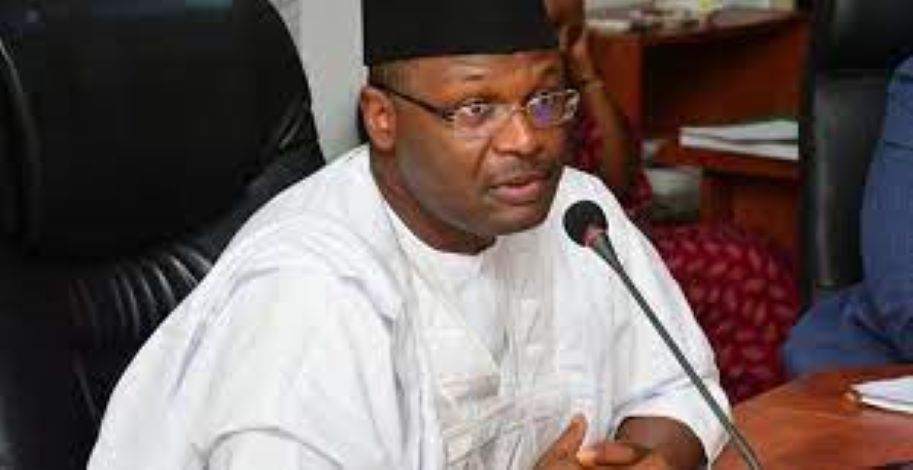By Myke Uzendu, Abuja
Chairman of the Independent National Electoral Commission (INEC), Prof. Mahmood Yakubu has warned that the commission would not tolerate unethical practices from electoral officers during the upcoming governorship elections in Edo and Ondo States.
The Commission’s boss said that achieving professionalism among election personnel is a critical step towards ensuring free, fair, credible, and inclusive elections. He asded that the commission’s involvement in effective training programs, has empowered its staff to uphold the highest standards of integrity and professionalism, to strengthen the processes and procedures to serve the interests of all Nigerians.
Mahmoud who was represented by the chairman of the Board of The Electoral Institute, Prof. Abdullahi Abdu Zuru, made the disclosure during the annual lecture organized by the Electoral Institute (EI) with the theme: “Achieving Professionalism among Election Personnel through Effective Training in Preparation for Edo and Ondo off-cycle Governorship Elections”
He pointed out that the success of any election largely depends on the professionalism and competence of those responsible for conducting it, adding that it is important that personnel responsible for the conduct of these elections are knowledgeable, skilled, and well-equipped with relevant competencies to handle the complexities and challenges of the electoral process.
The INEC boss emphacised the need for a high sense of professionalism amongst Election personnel engendered by effective training adding that they play a crucial role in upholding the integrity of the democratic processes.
He stressed that how the Electoral Officers discharge their duties and responsibilities affects the degree of confidence voters will have in the electoral process, impacting their participation and turnout.
He said, “The Commission has always demanded that all Election Officials should be punctual, courteous, polite, and helpful at all times. Voters are the masters and should be treated equally, decently, and with utmost respect.
“Unethical and corrupt practices by election officials will not be tolerated and shall incur severe punishments under the law. For these reasons, all election officials should be guided by a high sense of Integrity; Impartiality; Transparency; Professionalism; Gender and Disability Sensitivity; and Due consideration and support for the elderly, pregnant women, nursing mothers, and Persons with Disabilities (PWDs).
“Effective and Efficient Electoral Training is the key to unlocking professionalism among election personnel. Hence, the Commission is unequivocal in its drive to equip its staff cum trainers with the knowledge, skills, and ethical standards required to excel in their roles by investing in comprehensive and interactive training programs as well as exploring possible collaboration with development partners to achieve best practices in electoral training.
“Through training, the Commission is able to deepen electoral knowledge and strengthen the skills and competencies of personnel over time, build a pool of professional and efficient trainers/facilitators that is responsive to the training needs of Commission staff and other electoral stakeholders.
“Develop a structured approach that engenders decentralized service delivery for effective training programmes, broaden the understanding of the role of Commission staff, enabling them to contribute meaningfully to the goal of achieving free, fair, credible, and inclusive elections.
“Explore the modalities of global best practices with regard to the engagement and training of electoral personnel in the most efficient and cost-effective manner, develop effective monitoring and evaluation processes that will enhance the assessment of training impact.”
The commission, according to Mahmoud is able to evolve and adapt training to changes in technology and the electoral environment, adding that by achieving professionalism among Commission staff, the immediate low-hanging fruits will include public trust and confidence in the electoral process, accuracy, and reliability of election results, accountability and transparency and strengthening of democratic culture.



